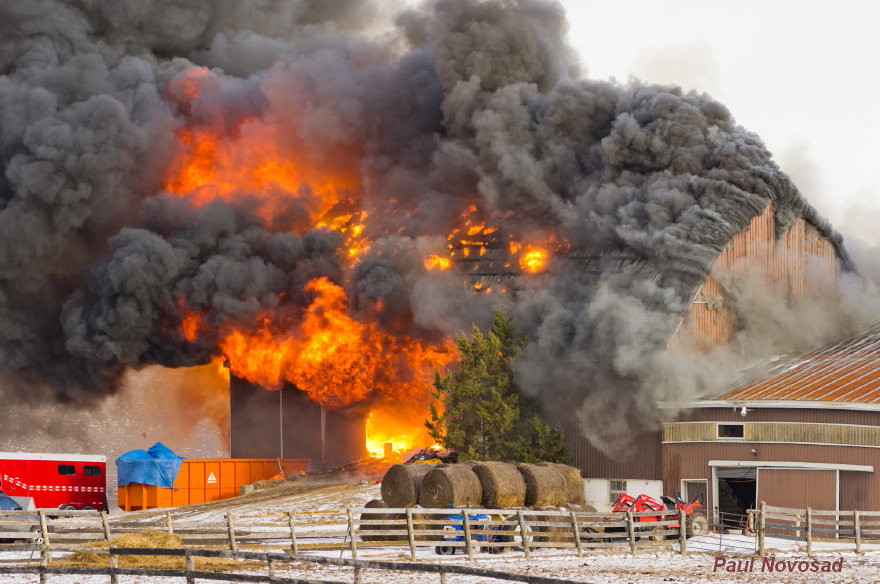Preventing Barn Fires
A barn is arguably one of the most likely places for a fire to start.The environment in barns is almost unique – certainly different from homes, offices, public buildings, even manufacturing facilities. There can be many causes of barn fires.
A fire requires three elements - oxygen, fuel and heat. Eliminate one and there is no fire. Obviously oxygen is not a candidate. Some fuels can be removed, but not all (e.g. straw, wood construction.) But sources of heat (ignition) can be eliminated. Following are some basic cost-effective steps:
- Have regular inspections done by a licensed electrician and fix the problems
- Hire a licensed electrician for all electrical work
- Consult with your insurance advisor regarding measures that can be taken to avoid a fire and possibly reduce your premium
- Install a temperature detector system with a telephone alert
- Use extension cords only temporarily
- Put cover plates on electrical boxes and explosion cages on light bulbs
- Consider running electrical wires through conduits to prevent rodent damage
- Purchase good quality heat lamps and have them installed as permanent equipment
- Have a dedicated smoking area well away from the barn
- Have fire extinguishers in good working order at all barn entrances (plus a few extras)
- Clean cobwebs and dust from electrical equipment
- Leave recently used equipment outside until it has cooled
- If hay is stored in the barn, test the temperature for spontaneous combustion
- Clean manure pits regularly
- Look for sources of ignition
- Ask your local fire department to do an onsite inspection
- Have an emergency checklist posted inside barn entrances
- Have an "end of day" checklist posted inside barn entrances
